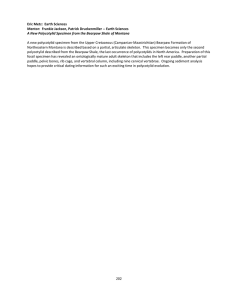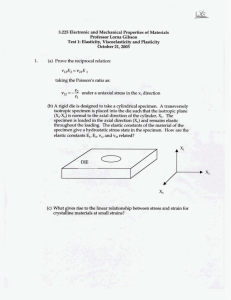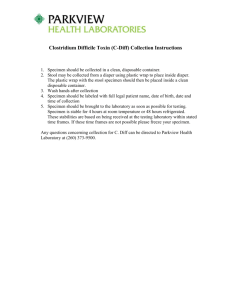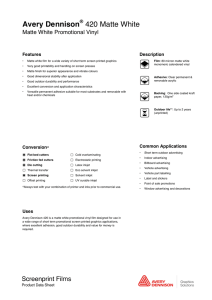Avery NV300 Reflective
advertisement
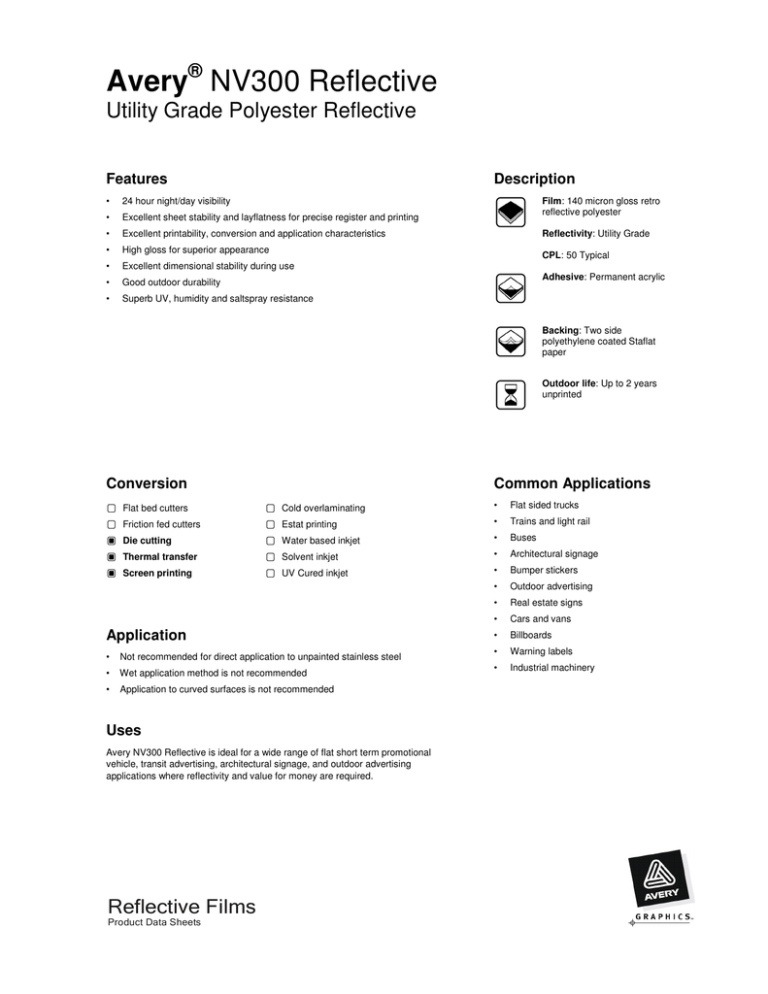
Avery® NV300 Reflective Utility Grade Polyester Reflective Features Description • 24 hour night/day visibility • Excellent sheet stability and layflatness for precise register and printing • Excellent printability, conversion and application characteristics • High gloss for superior appearance • Excellent dimensional stability during use • Good outdoor durability • Superb UV, humidity and saltspray resistance Film: 140 micron gloss retro reflective polyester Reflectivity: Utility Grade CPL: 50 Typical Adhesive: Permanent acrylic Backing: Two side polyethylene coated Staflat paper Outdoor life: Up to 2 years unprinted Conversion Common Applications Cold overlaminating • Flat sided trucks Estat printing • Trains and light rail Die cutting Water based inkjet • Buses Thermal transfer Solvent inkjet • Architectural signage Screen printing UV Cured inkjet • Bumper stickers • Outdoor advertising • Real estate signs • Cars and vans • Billboards • Warning labels • Industrial machinery Flat bed cutters Friction fed cutters Application • Not recommended for direct application to unpainted stainless steel • Wet application method is not recommended • Application to curved surfaces is not recommended Uses Avery NV300 Reflective is ideal for a wide range of flat short term promotional vehicle, transit advertising, architectural signage, and outdoor advertising applications where reflectivity and value for money are required. Reflective Films Product Data Sheets ® Avery NV300 Reflective 09/08 General Important Caliper, facefilm ISO 534 Caliper, facefilm & adhesive ISO 534 140 micron 157 micron Dimensional stability Excellent Flammability Self extinguishing Shelf life Stored at 22°C/50-55 % RH 1 year Durability ** Vertical exposure Up to 2 years (unprinted) Information on physical characteristics is based upon tests we believe to be reliable. The values listed herein are typical values and are not for use in specifications. They are intended only as a source of information and are given without guarantee and do not constitute a warranty. Purchasers should independently determine, prior to use, the suitability of any material for their specific use. All technical data is subject to change without prior notice. Warranty Avery® materials are manufactured under careful quality control and are warranted to be free from defect in material and workmanship. Any material shown to our satisfaction to be defective at the time of sale will be replaced without charge. Our aggregate liability to the purchaser shall in no circumstances exceed the cost of the defective materials supplied. No salesman, representative or agent is authorised to give guarantee, warranty, or make any representation contrary to the foregoing. Thermal Application temperature Minimum: + 10oC Temperature range - 40oC to + 82oC All Avery® materials are sold subject to the above conditions, being part of our standard conditions of sale, a copy of which is available on request. **Durability Durability is based on exposure conditions in the Asia Pacific region. Actual performance life will depend on substrate preparation, exposure conditions and maintenance of the marking. For instance, in the case of signs facing north in the southern hemisphere or south in the northern hemisphere; in areas of long high temperature exposure such as northern Australia; in industrially polluted areas or high altitudes, exterior performance will be decreased. ***Information unavailable at time of printing. Test Methods Dimensional stability: Is measured on a 150 x 150 mm aluminium panel to which a specimen has been applied; 72 hours after application the panel is exposed for 48 hours to + 70°C, after which the shrinkage is measured. Adhesion: (FTM-1, FINAT) is measured by peeling a specimen at a 180° angle from a stainless steel or float glass panel, 24 hours after the specimen has been applied under standardised conditions. Initial adhesion is measured 20 minutes after application of the specimen. Flammability: A specimen applied to aluminium is subjected to the flame of a gas burner for 15 seconds. The film should stop burning within 15 seconds after removal from the flame. Temperature range: A specimen applied to stainless steel is exposed at high and low temperatures and brought back to room temperature. 1 hour after exposure the specimen is examined for any deterioration. Note: Prolonged exposure to high and low temperatures in the presence of chemicals such as solvents, acids, dyes, etc. may eventually cause deterioration. Graphics & Reflective Products Division Asia Pacific www.averygraphics.com Chemical Resistance: All chemical tests are conducted with test panels to which a specimen has been applied. 72 hours after application the panels are immersed in the test fluid for the given test period. 1 hour after removing the panel from the fluid, the specimen is examined for any deterioration. Corrosion Resistance: A specimen applied to aluminium is exposed to saline mist (5% salt) at 35ºC. After exposure, the film is removed and the panel is examined for traces of corrosion.
